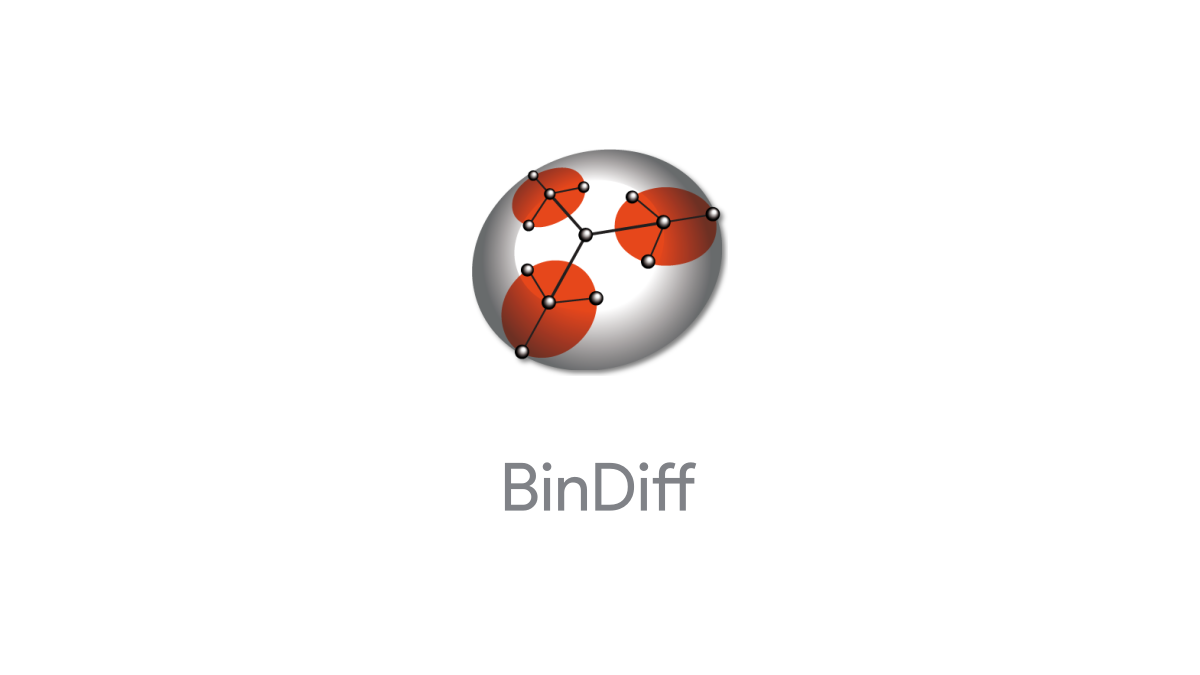Copyright 2011-2024 Google LLC.
This repository contains the BinDiff source code. BinDiff is an open-source comparison tool for binary files to quickly find differences and similarities in disassembled code.
BinDiff is an open-source comparison tool for binary files, that assists vulnerability researchers and engineers to quickly find differences and similarities in disassembled code.
With BinDiff, researchers can identify and isolate fixes for vulnerabilities in vendor-supplied patches. It can also be used to port symbols and comments between disassemblies of multiple versions of the same binary. This makes tracking changes over time easier and allows organizations to retain analysis results and enables knowledge transfer among binary analysts.
- Compare binary files for x86, MIPS, ARM, PowerPC, and other architectures supported by popular disassemblers.
- Identify identical and similar functions in different binaries
- Port function names, comments and local names from one disassembly to the other
- Detect and highlight changes between two variants of the same function
If you want to just get started using BinDiff, download prebuilt installation packages from the releases page.
Note: BinDiff relies on a separate disassembler. Out of the box, it ships with support for IDA Pro, Binary Ninja and Ghidra. The disassemblers page lists the supported configurations.
A subset of the existing manual is
available in the docs/ directory.
BinDiff contains the following components:
cmake- CMake build files declaring external dependenciesfixtures- A collection of test files to exercise the BinDiff core engineida- Integration with the IDA Pro disassemblerjava- Java source code. This contains the the BinDiff visual diff user interface and its corresponding utility library.match- Matching algorithms for the BinDiff core enginepackaging- Package sources for the installation packagestools- Helper executables that are shipped with the product
The instruction below should be enough to build both the native code and the Java based components.
More detailed build instructions will be added at a later date. This includes
ready-made Dockerfiles and scripts for building the installation packages.
BinDiff uses CMake to generate its build files for those components that consist of native C++ code.
The following build dependencies are required:
- BinExport 12, the companion plugin to BinDiff that also contains a lot of shared code
- Boost 1.71.0 or higher (a partial copy of 1.71.0 ships with BinExport and will be used automatically)
- CMake 3.14 or higher
- Ninja for speedy builds
- GCC 9 or a recent version of Clang on Linux/macOS. On Windows, use the Visual Studio 2019 compiler and the Windows SDK for Windows 10.
- Git 1.8 or higher
- IDA Pro only: IDA SDK 8.0 or higher (unpack into
deps/idasdk) - Dependencies that will be downloaded:
- Abseil, GoogleTest, Protocol Buffers (3.14), and SQLite3
- Binary Ninja SDK
The general build steps are the same on Windows, Linux and macOS. The following shows the commands for Linux.
Download dependencies that won't be downloaded automatically:
mkdir -p build/out
git clone https://github.com/google/binexport build/binexport
unzip -q <path/to/idasdk_pro80.zip> -d build/idasdkNext, configure the build directory and generate build files:
cmake -S . -B build/out -G Ninja \
-DCMAKE_BUILD_TYPE=Release \
-DCMAKE_INSTALL_PREFIX=build/out \
-DBINDIFF_BINEXPORT_DIR=build/binexport \
"-DIdaSdk_ROOT_DIR=${PWD}build/idasdk"Finally, invoke the actual build. Binaries will be placed in
build/out/bindiff-prefix:
cmake --build build/out --config Release
(cd build/out; ctest --build-config Release --output-on-failure)
cmake --install build/out --config ReleaseBuilding the Java based GUI requires the commercial third-party graph visualisation library yFiles for graph display and layout. This library is immensely powerful, and not easily replaceable.
To build, BinDiff uses Gradle 6.x and Java 11 LTS. Refer to its installation guide for instructions on how to install.
Assuming you are a yFiles license holder, set the YFILES_DIR environment
variable to a directory containing the yFiles y.jar and ysvg.jar.
Note: BinDiff still uses the older 2.x branch of yFiles.
Then invoke Gradle to download external dependencies and build:
Windows:
set YFILES_DIR=<path\to\yfiles_2.17>
cd java
gradle shadowJar
Linux or macOS:
export YFILES_DIR=<path/to/yfiles_2.17>
cd java
gradle shadowJar
Afterwards the directory ui/build/libs in the java sub-directory should
contain the self-contained bindiff-ui-all.jar artifact, which can be run
using the standard java -jar command.
The original papers outlining the general ideas behind BinDiff:
- Thomas Dullien and Rolf Rolles. Graph-Based Comparison of Executable Objects. bindiffsstic05-1.pdf. SSTIC ’05, Symposium sur la Sécurité des Technologies de l’Information et des Communications. 2005.
- Halvar Flake. Structural Comparison of Executable Objects. dimva_paper2.pdf. pp 161-173. Detection of Intrusions and Malware & Vulnerability Assessment. 2004.3-88579-375-X.
Other tools in the same problem space:
- Diaphora, an advanced program diffing tool implementing many of the same ideas.
- TurboDiff, a now-defunct program diffing plugin for IDA Pro.
Projects using BinDiff:
- VxSig, a tool to automatically generate AV byte signatures from sets of similar binaries.
BinDiff is licensed under the terms of the Apache license. See LICENSE for more information.
If you want to contribute, please read CONTRIBUTING.md before sending pull requests. You can also report bugs or file feature requests.
